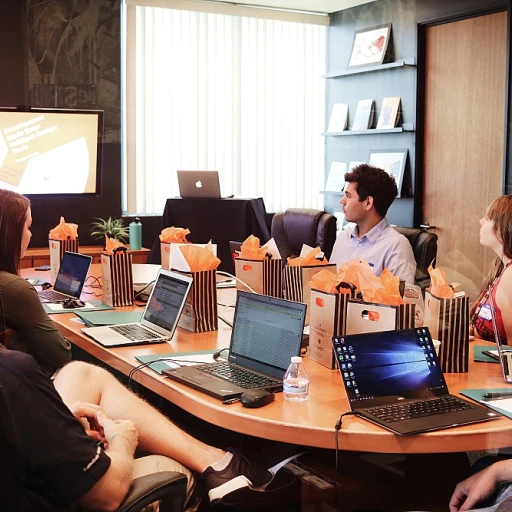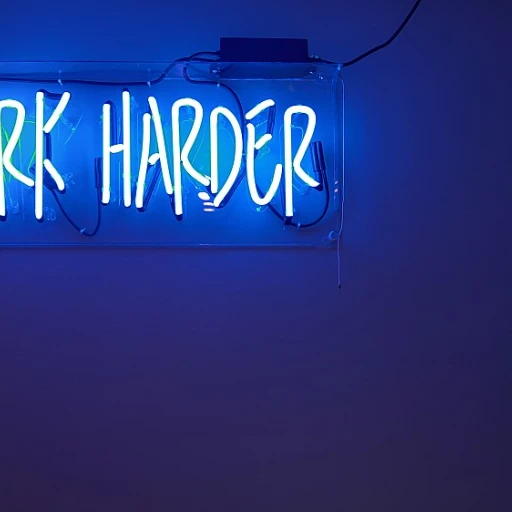
Understanding the role of case interview frameworks in HR
Why Case Interview Frameworks Matter in HR
Case interview frameworks are not just for consulting or business strategy roles. In the HR field, they help candidates demonstrate structured thinking, problem-solving, and a deep understanding of organizational challenges. When you face a case interview in HR, you are expected to analyze scenarios such as market entry, profitability, or organizational change—just as you would in a traditional consulting case. The difference is that your analysis must be tailored to people, processes, and company culture.
Bridging Business Analysis and Human Resources
HR professionals are increasingly expected to use frameworks like SWOT analysis, Porter’s Five Forces, and the BCG Matrix to address business problems. For example, you might be asked to assess the impact of variable costs on a company’s workforce strategy, or to analyze how market share changes could affect talent acquisition. These frameworks help you structure your response, ensuring you consider all relevant factors—from costs and profitability to bargaining power and employee engagement.
- SWOT Analysis: Useful for evaluating HR strengths, weaknesses, opportunities, and threats in a business context.
- Profitability Framework: Helps break down costs, revenues, and market factors affecting HR decisions.
- Porter’s Five Forces: Assists in understanding the competitive landscape and its impact on HR strategy.
- Market Entry Framework: Guides analysis of HR implications when a company enters a new market or launches a new product.
Using these frameworks in HR case interviews shows that you can think like a business partner, not just an administrator. It also prepares you for common case interview questions about company growth, product launches, or cost management. For a deeper dive into how to present your skills and experience for HR case interviews, check out this guide on crafting an effective HR resume for interviews.
Common HR case interview scenarios
Typical Scenarios You Might Face
When preparing for HR case interviews, it's essential to recognize the types of scenarios that frequently appear. These cases are designed to test your ability to apply structured thinking, use the right framework, and demonstrate business acumen. Here are some common case interview situations you may encounter:- Market Entry or Expansion: You may be asked how an HR department should support a company entering a new market or launching a new product. This often involves frameworks like market entry or Porter’s Five Forces to analyze competition, market share, and the bargaining power of employees.
- Profitability and Cost Analysis: Cases often focus on diagnosing declining profitability. You’ll need to break down fixed and variable costs, assess business strategy, and suggest HR-driven solutions to improve margins. The profitability framework is a useful tool here.
- Organizational Change: Interviewers may present a scenario where a company is restructuring, merging, or facing cultural challenges. Your response should show how HR can facilitate change management, using frameworks like SWOT analysis or the BCG matrix to evaluate options.
- Talent Acquisition and Retention: You might be asked to solve problems related to attracting or retaining top talent in a competitive market. This could involve analysis of compensation strategy, employer branding, and the impact on business performance.
- Performance Management: Cases may require you to design or improve a performance management system, linking it to company goals and profitability. Here, frameworks that connect HR metrics to business outcomes are valuable.
Why Structure Matters in HR Case Interviews
Each of these scenarios requires a clear structure to your response. Using an interview framework helps you break down complex problems into manageable parts. For example, when analyzing a market entry case, you might start with market analysis, then move to internal HR capabilities, followed by cost considerations and finally, implementation strategy. This approach not only impresses interviewers but also ensures you address all aspects of the problem.Connecting Your Approach to Real HR Challenges
The best candidates don’t just apply generic consulting frameworks—they adapt them to the unique challenges of HR. For instance, in a profitability case, you’ll want to consider not only financial costs but also the impact of HR initiatives on employee engagement and productivity. This holistic analysis is what sets apart strong interviewees. If you’re looking to demonstrate your readiness for management roles in HR, check out this guide on how to show you are management material in HR job interviews for practical tips.Sample Questions to Expect
To help with your interview prep, here are a few example questions that often come up:- "Our company is experiencing high turnover among sales staff. What framework would you use to analyze the problem and recommend solutions?"
- "We are planning to expand into a new market. How should HR support this strategy?"
- "Profit margins are shrinking. How can HR contribute to improving profitability?"
Structuring your response with effective frameworks
Building a Clear and Logical Response Structure
When facing HR case interviews, structuring your response is crucial. A well-organized answer demonstrates your ability to analyze the problem, prioritize information, and communicate clearly—skills valued in both consulting and HR roles. Using established frameworks helps you break down complex scenarios into manageable parts, ensuring you address all aspects of the case.- Start with clarifying questions: Before diving into your analysis, ask questions to clarify the business context, company objectives, or any ambiguous details. This step shows your attention to detail and helps you tailor your framework to the specific case.
- Select an appropriate framework: Choose a framework that fits the scenario. For example, use the profitability framework for cases focused on costs and revenue, or Porter’s Five Forces for market entry and competitive analysis. In HR, frameworks like SWOT analysis or the BCG matrix can also be adapted to assess talent management or organizational change.
- Structure your answer logically: Lay out your approach step by step. For instance, if analyzing a company’s declining market share, start with market analysis, then move to internal HR processes, and finally suggest strategies for improvement.
- Quantify where possible: Use numbers to support your analysis. Estimate costs, market size, or potential impact on profitability. This adds credibility and shows your comfort with business metrics.
- Summarize and recommend: End your response with a concise summary and actionable recommendations. Highlight how your strategy addresses the problem and aligns with the company’s goals.
| Framework | When to Use | Key Elements |
|---|---|---|
| Profitability Framework | Cost reduction, revenue growth, business performance | Revenue, variable costs, fixed costs, profit drivers |
| Porter’s Five Forces | Market entry, competitive analysis | Bargaining power, threat of substitutes, market share |
| SWOT Analysis | Organizational change, HR strategy | Strengths, weaknesses, opportunities, threats |
| BCG Matrix | Talent management, product portfolio | Market growth, relative market share, business units |
Adapting frameworks to HR-specific challenges
Customizing Consulting Frameworks for HR Scenarios
Traditional consulting frameworks like SWOT analysis, Porter’s Five Forces, and the BCG Matrix are staples in business case interviews. However, when it comes to HR case interviews, these frameworks need to be tailored to address people-centric challenges. The key is to adapt the structure of your analysis to focus on workforce dynamics, organizational culture, and talent management, rather than just market share or product profitability.
Aligning Frameworks with HR-Specific Problems
HR case interviews often revolve around issues such as employee retention, recruitment strategies, or improving workplace diversity. While a profitability framework might help in a business case, in HR, you’ll want to shift your focus:
- SWOT Analysis: Instead of just strengths and weaknesses of a product, analyze the company’s talent pool, training programs, and leadership pipeline.
- Porter’s Five Forces: Consider the bargaining power of employees, the threat of turnover, and the impact of labor market trends on the company’s HR strategy.
- Market Entry Framework: Apply this to scenarios like entering a new talent market or expanding recruitment channels, not just launching a new business product.
Practical Example: Adapting a Profitability Framework
Suppose you’re given a case interview question about reducing high employee turnover. A classic profitability framework would look at revenue and costs. In HR, you’d adapt this by analyzing:
| Component | HR Application |
|---|---|
| Revenue | Productivity gains from retaining experienced staff |
| Fixed Costs | Ongoing training programs, HR systems |
| Variable Costs | Recruitment, onboarding, and lost productivity from turnover |
This structure helps you show a clear, business-oriented approach while addressing the unique variables in HR.
Tips for Effective Framework Adaptation
- Always clarify the problem before choosing a framework. Not every HR case fits a classic consulting structure.
- Combine frameworks if needed. For example, use SWOT for internal analysis and Porter’s Five Forces for external labor market pressures.
- Focus on the human impact—how will your strategy affect employee engagement, company culture, and long-term business goals?
By customizing your approach, you demonstrate both analytical rigor and a deep understanding of HR’s role in business strategy. This is what sets apart strong candidates in HR case interviews.
Mistakes to avoid when using case interview frameworks
Overcomplicating Your Framework
Many candidates believe that using as many frameworks as possible will impress interviewers. In reality, overloading your response with multiple frameworks—like the BCG matrix, SWOT analysis, or Porter forces—can make your answer confusing and unfocused. Stick to one or two frameworks that directly address the problem. For example, if the case is about market entry, use a market entry framework and supplement with a profitability framework only if costs or price are central to the case.Ignoring the Company’s Context
Applying generic consulting frameworks without considering the company’s unique business environment is a common pitfall. Each case interview is tailored to a specific company, product, or market. Failing to adapt your structure to the company’s strategy, market share, or bargaining power can make your analysis seem disconnected. Always tailor your framework to the company’s real-world challenges.Missing Key Drivers in Your Analysis
A strong interview framework should cover all critical drivers of the problem. For instance, in a case about declining profitability, don’t just focus on variable costs—consider revenue streams, market trends, and competitor actions. Missing these elements can lead to incomplete answers and missed opportunities to demonstrate your business acumen.Neglecting to Structure Your Response Clearly
Even with the right framework, a poorly structured response can undermine your performance. Avoid jumping between unrelated points or skipping logical steps. Use a clear structure: state your framework, walk through each component, and link your analysis back to the case question. This approach shows your ability to think in a structured, consulting-style manner.Failing to Adapt on the Fly
Case interviews often evolve as new information is provided. Rigidly sticking to your initial framework without adapting to new data or interviewer prompts can hurt your credibility. Be ready to adjust your analysis and incorporate new insights, whether it’s a shift in market conditions or a change in business strategy.- Don’t force-fit frameworks case after case—choose what’s relevant.
- Always clarify assumptions and ask questions if the case details are unclear.
- Practice interview prep with real HR scenarios to build flexibility.
Sample HR case interview questions and framework applications
Sample Questions and How to Apply Frameworks
When preparing for HR case interviews, it’s helpful to see how interview frameworks can be used in real scenarios. Below are some common case interview questions you might face, along with suggestions on which frameworks to use and how to structure your analysis.- Case: A company is experiencing high employee turnover. What steps would you take to analyze and address the problem?
- Frameworks to Use: Start with a problem-solving framework—define the problem, analyze root causes, and propose solutions. You might also use SWOT analysis to assess internal and external factors affecting retention.
- Structure:
- Clarify the scope of the turnover issue (departments, roles, tenure)
- Gather data on exit interviews, market benchmarks, and compensation
- Analyze variable costs and impact on profitability
- Recommend strategies (improving onboarding, adjusting benefits, training managers)
- Case: The business is considering entering a new market to recruit talent. How would you assess this opportunity?
- Frameworks to Use: Apply a market entry framework—evaluate market size, competition, and barriers to entry. Use Porter’s Five Forces to analyze the bargaining power of suppliers and buyers, and the threat of new entrants.
- Structure:
- Assess market share and demand for talent
- Analyze costs of entry (recruitment, compliance, training)
- Consider company strengths and weaknesses (SWOT)
- Recommend a go/no-go strategy based on findings
- Case: HR is tasked with reducing costs while maintaining employee engagement. What approach would you take?
- Frameworks to Use: Use a profitability framework—look at fixed and variable costs, and identify areas for savings. The BCG matrix can help prioritize HR initiatives based on impact and resource allocation.
- Structure:
- Break down HR costs (training, benefits, recruitment)
- Analyze which programs drive the most value
- Recommend cost-saving measures that align with business strategy
- Monitor results and adjust as needed
Tips for Applying Frameworks in Interviews
- Always clarify the problem and ask follow-up questions before jumping into a framework.
- Choose the framework that best fits the case, but don’t be afraid to combine elements from different frameworks for a more complete analysis.
- Structure your response logically—start broad, then dive into specifics.
- Use data and examples where possible to support your analysis.
- Practice with common case interview questions to build confidence and fluency in using frameworks.
| Case Type | Recommended Frameworks | Key Focus Areas |
|---|---|---|
| Turnover Analysis | Problem-Solving, SWOT | Root causes, costs, retention strategies |
| Market Entry | Market Entry, Porter’s Five Forces | Market size, competition, barriers |
| Cost Reduction | Profitability, BCG Matrix | Cost breakdown, value drivers, engagement |
By practicing with these examples and frameworks, you’ll be better prepared for the variety of case interviews you may encounter in HR consulting or business roles. Remember, the key is to stay structured, analytical, and adaptable in your approach.













